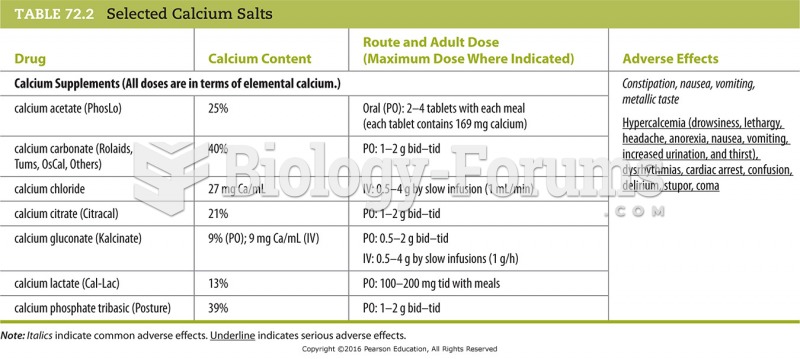|
|
|
The first oral chemotherapy drug for colon cancer was approved by FDA in 2001.
About 100 new prescription or over-the-counter drugs come into the U.S. market every year.
In 2006, a generic antinausea drug named ondansetron was approved. It is used to stop nausea and vomiting associated with surgery, chemotherapy, and radiation therapy.
A cataract is a clouding of the eyes' natural lens. As we age, some clouding of the lens may occur. The first sign of a cataract is usually blurry vision. Although glasses and other visual aids may at first help a person with cataracts, surgery may become inevitable. Cataract surgery is very successful in restoring vision, and it is the most frequently performed surgery in the United States.
More than 4.4billion prescriptions were dispensed within the United States in 2016.







